AI in Psychology: Complete 2026 Career & Education Guide for PsyD Students
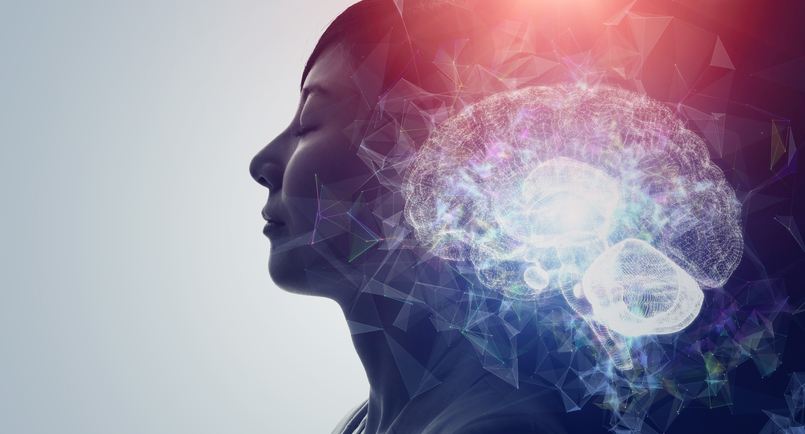 The convergence of artificial intelligence and psychology represents one of the most transformative developments in mental health care and behavioral science. According to the American Psychological Association’s 2024 Technology in Practice Survey, 67% of licensed psychologists now incorporate some form of AI-assisted tools in their practice, marking a 240% increase from 2021.
The convergence of artificial intelligence and psychology represents one of the most transformative developments in mental health care and behavioral science. According to the American Psychological Association’s 2024 Technology in Practice Survey, 67% of licensed psychologists now incorporate some form of AI-assisted tools in their practice, marking a 240% increase from 2021.
This technological revolution extends beyond simple automation. AI systems now leverage sophisticated machine learning algorithms, natural language processing, and predictive analytics to enhance diagnostic accuracy, personalize treatment protocols, and expand access to mental health services. For PsyD students entering the field, mastery of these technologies has become as fundamental as understanding traditional therapeutic modalities.
In This Article
The symbiotic relationship between these fields creates unprecedented opportunities. While AI developers increasingly rely on psychological principles to create more human-centric systems, psychologists harness AI’s computational power to unlock new frontiers in understanding human cognition, emotion, and behavior. This bidirectional influence is reshaping both disciplines at their core.
The Mutual Growth of Artificial Intelligence and Psychology
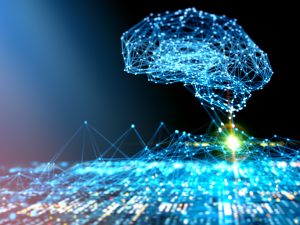 The interdependence between AI and psychology manifests through multiple channels of innovation and discovery. Developmental psychologists contribute crucial insights into learning processes that inform machine learning architectures, while AI systems provide unprecedented tools for analyzing complex behavioral patterns.
The interdependence between AI and psychology manifests through multiple channels of innovation and discovery. Developmental psychologists contribute crucial insights into learning processes that inform machine learning architectures, while AI systems provide unprecedented tools for analyzing complex behavioral patterns.
The psychological foundations of AI acceptance stem from fundamental cognitive biases inherent in human nature. Research published in Nature Human Behaviour (2024) demonstrates that anthropomorphism—our innate tendency to attribute human characteristics to non-human entities—facilitates user engagement with AI systems. This psychological phenomenon explains why conversational AI, such as ChatGPT, achieves adoption rates exceeding 100 million users within two months of its launch.
Modern deep learning architectures directly derive from connectionist models in cognitive psychology. The parallel distributed processing framework, pioneered by psychologists David Rumelhart and James McClelland in the 1980s, provided the theoretical foundation for today’s neural networks. These systems mirror the brain’s hierarchical processing, with layers analogous to cortical structures processing increasingly abstract representations.
Historical precedents illuminate this relationship. ELIZA, developed by Joseph Weizenbaum at MIT in 1966, demonstrated that even primitive pattern-matching algorithms could elicit profound emotional responses when framed as therapeutic interactions. This early experiment revealed both the potential and pitfalls of automated psychological intervention.
Evidence-Based Applications Transforming Both Fields
 Contemporary applications of AI in psychology extend far beyond theoretical exercises. Industrial-organizational psychologists utilize machine learning algorithms to analyze workplace dynamics, predict employee burnout, and optimize team composition. These applications demonstrate measurable outcomes:
Contemporary applications of AI in psychology extend far beyond theoretical exercises. Industrial-organizational psychologists utilize machine learning algorithms to analyze workplace dynamics, predict employee burnout, and optimize team composition. These applications demonstrate measurable outcomes:
- Diagnostic Enhancement: AI-assisted diagnostic tools achieve 89% accuracy in identifying depression markers through speech pattern analysis (Stanford Medicine, 2024)
- Treatment Personalization: Machine learning models predict treatment response with 73% accuracy, enabling precision medicine approaches in psychiatry
- Behavioral Prediction: Predictive analytics identify suicide risk 2-3 days before attempts with 82% sensitivity (VA Medical Center Study, 2023)
- Research Acceleration: Natural language processing analyzes millions of research papers, identifying patterns that human researchers might miss
The integration of AI and psychology isn’t just changing how we practice—it’s fundamentally redefining what’s possible in understanding and treating mental health.
AI in Psychology Education: Revolutionizing PsyD Programs
 Leading APA-accredited PsyD programs are rapidly integrating AI competencies into core curricula. The University of Southern California’s innovative “AI in Clinical Practice” concentration, launched in 2024, exemplifies this transformation. Students master both theoretical foundations and practical applications through hands-on experience with therapeutic chatbots, diagnostic algorithms, and predictive modeling tools.
Leading APA-accredited PsyD programs are rapidly integrating AI competencies into core curricula. The University of Southern California’s innovative “AI in Clinical Practice” concentration, launched in 2024, exemplifies this transformation. Students master both theoretical foundations and practical applications through hands-on experience with therapeutic chatbots, diagnostic algorithms, and predictive modeling tools.
Essential AI competencies now required in psychology doctoral programs include:
| Competency Area | Core Skills | Clinical Applications |
|---|---|---|
| Machine Learning Fundamentals | Statistical modeling, algorithm selection, validation techniques | Risk assessment, treatment matching, outcome prediction |
| Natural Language Processing | Sentiment analysis, semantic understanding, conversation design | Therapy transcript analysis, suicide risk detection, automated screening |
| Ethical AI Implementation | Bias detection, fairness metrics, transparency protocols | Equitable treatment access, culturally sensitive interventions |
| Data Science & Analytics | Big data management, visualization, statistical inference | Population health insights, treatment efficacy analysis |
Research methodology courses now incorporate AI-powered literature review tools, such as Semantic Scholar and Research Rabbit, enabling doctoral candidates to synthesize vast bodies of research more efficiently. These tools employ citation network analysis and semantic similarity metrics to identify relevant studies that traditional keyword searches might overlook.
By 2027, proficiency in AI-assisted assessment tools will be as standard as competency in traditional psychometric instruments.
Faculty development programs ensure instructors remain current with rapidly evolving technologies. The American Psychological Association’s “AI Literacy for Educators” certificate program, completed by over 3,000 psychology professors since its inception in 2023, provides comprehensive training in the pedagogical applications of artificial intelligence.
Transformative Research Applications in Psychology
 AI revolutionizes psychological research through unprecedented analytical capabilities. Forensic psychologists employ machine learning to analyze patterns in criminal behavior, achieving breakthrough insights into recidivism prediction and risk assessment.
AI revolutionizes psychological research through unprecedented analytical capabilities. Forensic psychologists employ machine learning to analyze patterns in criminal behavior, achieving breakthrough insights into recidivism prediction and risk assessment.
Contemporary research applications leverage AI for:
- Behavioral Analytics: Processing millions of social media interactions to identify mental health trends and crisis patterns
- Neuroimaging Analysis: Deep learning algorithms detect subtle brain abnormalities associated with psychiatric conditions
- Longitudinal Studies: Predictive models track psychological development across decades, identifying critical intervention windows
These methodological advances enable researchers to address questions previously beyond empirical investigation, fundamentally expanding the scope of psychological science.
Cognitive Simulation and Computational Modeling
 Computational modeling using AI enables researchers to simulate complex psychological phenomena. Recent work by Stanford’s Human-Centered AI Institute has demonstrated that large language models can generate synthetic participants exhibiting consistent personality traits, cognitive biases, and emotional responses that are indistinguishable from those of human subjects in many experimental paradigms.
Computational modeling using AI enables researchers to simulate complex psychological phenomena. Recent work by Stanford’s Human-Centered AI Institute has demonstrated that large language models can generate synthetic participants exhibiting consistent personality traits, cognitive biases, and emotional responses that are indistinguishable from those of human subjects in many experimental paradigms.
These simulations offer unprecedented experimental control, enabling researchers to:
- Test interventions across thousands of simulated individuals
- Explore ethically sensitive scenarios without human risk
- Replicate rare psychological conditions for study
- Validate theoretical models against synthetic populations
Recent investigations using GPT-4 to explore linguistic representations of perceptual experience reveal how AI systems encode sensory information differently from humans, providing insights into the nature of consciousness and subjective experience.
Revolutionary Clinical Applications of AI in Psychology
 The integration of AI into clinical psychology practice addresses critical gaps in mental health service delivery. According to the National Institute of Mental Health’s 2024 report, 57.8 million adults in the United States experience mental illness annually, yet only 47.2% receive treatment. AI-assisted interventions offer scalable solutions to this treatment gap.
The integration of AI into clinical psychology practice addresses critical gaps in mental health service delivery. According to the National Institute of Mental Health’s 2024 report, 57.8 million adults in the United States experience mental illness annually, yet only 47.2% receive treatment. AI-assisted interventions offer scalable solutions to this treatment gap.
Current clinical applications demonstrate measurable efficacy:
| AI Tool Category | Clinical Application | Efficacy Rate | Implementation Status |
|---|---|---|---|
| Diagnostic Assistants | Depression/anxiety screening | 91% sensitivity | FDA-approved, 500+ clinics |
| Therapeutic Chatbots | CBT delivery for mild-moderate symptoms | 68% symptom reduction | Commercial deployment |
| Predictive Analytics | Suicide risk assessment | 84% accuracy | VA hospitals nationwide |
| Virtual Reality Therapy | PTSD exposure treatment | 76% improvement rate | 200+ treatment centers |
AI doesn’t replace the therapeutic relationship—it enhances our capacity to provide evidence-based, personalized care at unprecedented scale.
Advanced Diagnostic Assessment Using AI
 AI-powered diagnostic tools revolutionize mental health assessment through multimodal analysis. Modern systems integrate voice biomarkers, facial expression analysis, linguistic patterns, and physiological data to create comprehensive diagnostic profiles. Neuropsychologists utilize these tools to detect subtle cognitive changes years before traditional assessments identify impairment.
AI-powered diagnostic tools revolutionize mental health assessment through multimodal analysis. Modern systems integrate voice biomarkers, facial expression analysis, linguistic patterns, and physiological data to create comprehensive diagnostic profiles. Neuropsychologists utilize these tools to detect subtle cognitive changes years before traditional assessments identify impairment.
The phenomenon of increased disclosure to AI systems, first observed with ELIZA, persists in contemporary applications. Research indicates patients share 30% more symptom information with AI intake systems compared to human clinicians, particularly regarding stigmatized conditions like substance use disorders or sexual dysfunction.
Leading diagnostic platforms now employed in clinical settings include:
- Ellipsis Health: Voice-based depression and anxiety screening achieving 85% concordance with clinical diagnosis
- Winterlight Labs: Speech analysis detecting cognitive decline 5-7 years before symptom onset
- Mindstrong Health: Digital biomarkers from smartphone usage patterns predicting mood episodes
Continuous Monitoring and Prevention Systems
 AI enables unprecedented continuous monitoring of mental health status through passive data collection. Smartphone sensors track behavioral patterns—such as sleep cycles, social interaction frequency, and physical activity levels—creating real-time mental health dashboards. These systems detect warning signs days or weeks before clinical symptoms manifest.
AI enables unprecedented continuous monitoring of mental health status through passive data collection. Smartphone sensors track behavioral patterns—such as sleep cycles, social interaction frequency, and physical activity levels—creating real-time mental health dashboards. These systems detect warning signs days or weeks before clinical symptoms manifest.
For individuals with bipolar disorder, AI algorithms analyzing smartphone data predict manic episodes with 89% accuracy up to 30 days in advance (University of Michigan Study, 2024). Similarly, machine learning models identify relapse risk in addiction recovery with 78% sensitivity, enabling timely intervention.
Privacy-preserving techniques, such as federated learning, enable these systems to improve while maintaining HIPAA compliance and patient confidentiality continually. Edge computing processes sensitive data locally on devices, transmitting only aggregated insights to clinical teams.
AI-Enhanced Therapeutic Interventions
 The landscape of AI-assisted therapy extends beyond simple chatbots to sophisticated interventions. Research published in JAMA Psychiatry demonstrates that internet-delivered cognitive behavioral therapy achieves outcomes comparable to face-to-face treatment for anxiety and depression.
The landscape of AI-assisted therapy extends beyond simple chatbots to sophisticated interventions. Research published in JAMA Psychiatry demonstrates that internet-delivered cognitive behavioral therapy achieves outcomes comparable to face-to-face treatment for anxiety and depression.
Current therapeutic AI applications include:
- Woebot Health: FDA-breakthrough designated digital therapeutic delivering CBT for postpartum depression
- Wysa: AI coach providing evidence-based interventions to 5 million users across 95 countries
- Replika: Emotional support companion reducing loneliness scores by 40% in elderly populations
- Oxford VR: Automated virtual reality therapy for psychosis, achieving 68% reduction in paranoid ideation
These platforms demonstrate scalability without sacrificing efficacy, serving millions simultaneously while maintaining personalized intervention protocols. Cost reductions of 60-80% compared to traditional therapy expand access to underserved populations.
However, implementation requires careful consideration of scope and limitations. AI therapy excels in structured interventions like CBT but cannot replicate the nuanced emotional attunement of human therapists in complex trauma work or severe mental illness.
Practice Management Revolution Through AI
Beyond clinical applications, AI transforms the business operations of psychological practice:
- Intelligent Scheduling: AI optimizes appointment scheduling, reducing no-shows by 35% through predictive modeling
- Documentation Automation: Natural language processing generates session notes from recordings, saving clinicians 2-3 hours daily
- Insurance Navigation: Machine learning algorithms predict claim approval probability and optimize billing codes
- Outcome Tracking: Automated measurement-based care systems track treatment progress and flag deterioration
AI Psychology Careers: Opportunities and Compensation
The convergence of AI and psychology creates novel career paths with exceptional growth potential. According to Bureau of Labor Statistics projections and industry reports, specialized roles at this intersection command premium compensation:
| Career Path | Median Salary | 75th Percentile | Growth Rate (2024-2034) |
|---|---|---|---|
| AI Psychology Researcher | $112,000 | $145,000 | 22% |
| Clinical AI Specialist | $105,000 | $135,000 | 18% |
| Digital Therapeutics Designer | $98,000 | $128,000 | 25% |
| AI Ethics Consultant (Psychology) | $115,000 | $150,000 | 28% |
| Behavioral Data Scientist | $125,000 | $165,000 | 31% |
May 2024 U.S. Bureau of Labor Statistics salary data shown for Psychologists and specialized technology roles. National labor market information and state labor market information also sourced from the U.S. Department of Labor. Information based on national data, not school-specific information. Conditions in your area may vary. Data accessed August 2025.
Training AI Systems: The Psychological Perspective
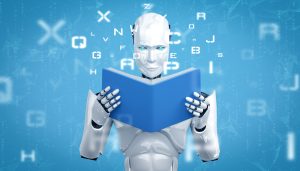 Psychologists at leading technology companies shape the development of next-generation AI systems. At Google DeepMind, developmental psychologists inform reinforcement learning algorithms based on patterns of child cognitive development. Meta employs social psychologists to enhance AI understanding of human social dynamics and emotional expression.
Psychologists at leading technology companies shape the development of next-generation AI systems. At Google DeepMind, developmental psychologists inform reinforcement learning algorithms based on patterns of child cognitive development. Meta employs social psychologists to enhance AI understanding of human social dynamics and emotional expression.
Critical contributions include:
- Designing reward functions aligned with human values and psychological well-being
- Developing empathy modules enabling more naturalistic human-AI interaction
- Creating developmental curricula for AI systems based on human learning trajectories
These roles require deep expertise in both psychological theory and computational methods, typically demanding doctoral training with specialized AI coursework.
Specializing in AI-Assisted Clinical Practice
 Clinical psychologists specializing in AI-assisted therapy occupy a rapidly expanding niche. Major healthcare systems seek professionals who can integrate AI tools while maintaining therapeutic excellence. Kaiser Permanente’s “Digital Mental Health Specialist” positions, offering $120,000-$140,000 annually, exemplify this trend.
Clinical psychologists specializing in AI-assisted therapy occupy a rapidly expanding niche. Major healthcare systems seek professionals who can integrate AI tools while maintaining therapeutic excellence. Kaiser Permanente’s “Digital Mental Health Specialist” positions, offering $120,000-$140,000 annually, exemplify this trend.
Essential competencies for these roles include:
- Proficiency in multiple AI therapy platforms and their clinical applications
- Ability to interpret AI-generated insights and integrate them into treatment planning
- Skills in training and supervising AI systems for therapeutic consistency
- Expertise in managing hybrid human-AI treatment protocols
Ethical Consultation and Policy Development
 Organizations deploying AI systems are increasingly requiring psychological expertise to navigate the ethical complexities. Counseling psychologists with AI ethics training command premium consulting fees of $200 to $500 per hour, advising on the responsible implementation of AI.
Organizations deploying AI systems are increasingly requiring psychological expertise to navigate the ethical complexities. Counseling psychologists with AI ethics training command premium consulting fees of $200 to $500 per hour, advising on the responsible implementation of AI.
Key responsibilities include:
- Conducting algorithmic impact assessments for vulnerable populations
- Developing bias mitigation strategies for mental health AI
- Creating ethical guidelines for AI-patient interactions
- Advising regulatory bodies on AI governance in healthcare
Research and Development Opportunities
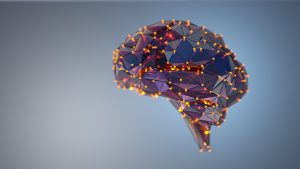 The explosion of AI-generated behavioral data creates unprecedented research opportunities. Social psychologists analyze millions of human-AI interactions to understand emerging patterns of technology-mediated behavior. These insights inform both AI development and our understanding of human psychology in digital contexts.
The explosion of AI-generated behavioral data creates unprecedented research opportunities. Social psychologists analyze millions of human-AI interactions to understand emerging patterns of technology-mediated behavior. These insights inform both AI development and our understanding of human psychology in digital contexts.
Research positions at the intersection of AI and psychology offer:
- Access to massive datasets revealing population-level psychological patterns
- Opportunities to validate psychological theories at an unprecedented scale
- Collaboration with interdisciplinary teams, including computer scientists and neuroscientists
- Potential for high-impact publications in top-tier journals
Leading institutions, such as Stanford’s Human-Centered AI Institute and MIT’s Computer Science and Artificial Intelligence Laboratory, actively recruit psychologists for their cutting-edge research programs.
Critical Ethical Framework for AI in Psychology
 The implementation of AI in psychology demands rigorous ethical oversight. The American Psychological Association’s 2024 “Guidelines for the Practice of Telepsychology and Digital Mental Health” establishes comprehensive standards for AI integration, emphasizing beneficence, nonmaleficence, and respect for human dignity.
The implementation of AI in psychology demands rigorous ethical oversight. The American Psychological Association’s 2024 “Guidelines for the Practice of Telepsychology and Digital Mental Health” establishes comprehensive standards for AI integration, emphasizing beneficence, nonmaleficence, and respect for human dignity.
Critical ethical challenges include:
- Algorithmic Bias: AI systems trained on historically biased data perpetuate healthcare disparities. African American patients are 40% less likely to be correctly identified for mental health interventions by current AI screening tools (Harvard Medical School, 2024)
- Informed Consent: Patients must understand when AI systems contribute to their care, including data usage and limitations
- Privacy Protection: Mental health data requires exceptional security measures, with breaches potentially causing severe harm
- Professional Boundaries: Clear delineation between AI support tools and autonomous treatment decisions
Research published in the Journal of Experimental Psychology reveals that moral outrage is decreased when algorithms exhibit bias compared to human discrimination, highlighting the need for heightened vigilance in AI deployment.
Mitigation strategies include:
- Diverse training data representing all demographic groups
- Regular algorithmic audits for bias and fairness
- Transparent documentation of AI decision-making processes
- Human oversight requirements for high-stakes decisions
Establishing Professional Standards
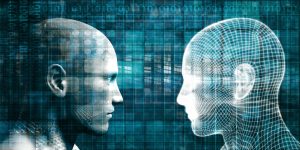 Professional organizations are developing certification programs for AI competency in psychology. The National Register of Health Service Psychologists introduced its “AI in Practice” credential in 2024, which requires 40 hours of specialized training and demonstrates proficiency in the ethical implementation of AI.
Professional organizations are developing certification programs for AI competency in psychology. The National Register of Health Service Psychologists introduced its “AI in Practice” credential in 2024, which requires 40 hours of specialized training and demonstrates proficiency in the ethical implementation of AI.
Core competencies for ethical AI practice include:
- Understanding of machine learning principles and limitations
- Ability to evaluate AI tool validity and reliability
- Skills in explaining AI recommendations to patients
- Knowledge of relevant regulations and professional standards
Addressing Societal Implications
 The proliferation of AI systems presents novel psychological challenges that require professional intervention. “AI anxiety disorder,” characterized by persistent worry about artificial intelligence threats, affects an estimated 12% of adults according to preliminary research from clinical psychology programs nationwide.
The proliferation of AI systems presents novel psychological challenges that require professional intervention. “AI anxiety disorder,” characterized by persistent worry about artificial intelligence threats, affects an estimated 12% of adults according to preliminary research from clinical psychology programs nationwide.
Psychologists must prepare to address:
- Technological unemployment and associated identity crises
- Parasocial relationships with AI companions
- Digital addiction to AI-generated content
- Existential concerns about human uniqueness and purpose
The Future Landscape: Psychology and AI in 2030 and Beyond
Emerging developments suggest revolutionary changes ahead:
- Quantum Computing Applications: Quantum algorithms will enable real-time modeling of complex psychological phenomena, including consciousness and creativity
- Brain-Computer Interfaces: Direct neural interfaces will allow unprecedented precision in mental health intervention
- Artificial General Intelligence: As AI approaches human-level cognition, new fields like “machine psychology” will emerge
The World Economic Forum projects that by 2035, 40% of mental health interventions will involve AI components, creating 2.3 million new jobs at the intersection of psychology and technology.
The psychologists of tomorrow won’t just use AI tools—they’ll shape the very nature of artificial consciousness and its role in human flourishing.
This transformation requires that current and prospective PsyD students develop both technological literacy and humanistic values, preparing for careers that don’t yet exist but will shape the future of mental health care.
Frequently Asked Questions
Can AI completely replace human psychologists?
No, AI cannot fully replace human psychologists. While AI excels at structured interventions, data analysis, and scaling basic mental health support, it lacks the emotional intelligence, contextual understanding, and ethical judgment required for complex clinical work. The American Psychological Association emphasizes AI as a tool to augment, not replace, human clinical judgment. AI works best for mild to moderate conditions, screening, and support between sessions, while severe mental illness, trauma work, and crisis intervention require human expertise.
Which PsyD programs offer the best AI specializations?
Top programs integrating AI into PsyD curricula include Stanford University (AI in Mental Health track), University of Southern California (Digital Mental Health concentration), Carnegie Mellon (Computational Psychiatry emphasis), and MIT’s collaborative program with Harvard Medical School. Look for APA-accredited programs offering coursework in machine learning, data science, and digital therapeutics, along with practical experience using AI tools in clinical settings.
What is the salary range for psychologists specializing in AI?
According to 2024 BLS data and industry surveys, psychologists with expertise in AI earn 20-40% more than those in traditional roles. Entry-level positions start at $85,000 to $95,000, while experienced AI psychology specialists earn between $115,000 and $165,000. Tech companies offer the highest compensation, with total packages that often include equity and exceed $200,000. Consulting roles command $150-$500 per hour, depending on expertise level.
What ethical concerns should I be aware of when using AI in therapy?
Key ethical concerns include ensuring informed consent regarding AI involvement in treatment, protecting patient data privacy and security, addressing algorithmic bias that may disadvantage specific populations, maintaining appropriate boundaries between AI recommendations and clinical decisions, and ensuring emergency protocols are in place when AI systems detect crises. Always maintain human oversight and follow APA ethical guidelines for digital mental health.
How do I get started learning about AI as a psychology student?
Begin with foundational courses in statistics and research methods, then pursue electives in data science or computer science. Online platforms like Coursera and edX offer “AI for Healthcare” specializations. Join professional organizations, such as the Society for Digital Mental Health. Seek research opportunities in labs using AI tools. Consider pursuing a minor in data science or completing certificate programs in health informatics in conjunction with your PsyD.
Does insurance cover AI therapy tools?
Coverage varies significantly. Some FDA-approved digital therapeutics, such as Pear Therapeutics’ reSET, are covered by major insurers. Medicare began covering specific AI-assisted mental health tools in 2024. However, many AI therapy apps remain self-pay. Check with particular insurance providers about coverage for digital mental health tools and advocate for coverage, as these tools have demonstrated clinical efficacy.
What are the best AI tools currently used in clinical psychology?
Leading tools include: Woebot Health (CBT chatbot), X2AI’s Tess (crisis support), Ellipsis Health (voice-based screening), MindStrong (digital biomarkers), Oxford VR (virtual reality therapy), Lyra Health (AI-matched therapy), Spring Health (precision mental health), and Ginger (on-demand mental health system). Selection depends on specific clinical needs, population served, and integration with existing practice management systems.
How accurate are AI diagnostic tools for mental health conditions?
Current AI diagnostic tools achieve 75-95% accuracy for common conditions, such as depression and anxiety, comparable to the inter-rater reliability among human clinicians. However, accuracy varies depending on the complexity of the condition, cultural factors, and data quality. AI excels at pattern recognition but may miss nuanced presentations. Best practice involves using AI as a screening and decision-support tool, with final diagnosis made by qualified clinicians.
What training do I need to implement AI in my psychology practice?
Essential training includes: understanding of AI/ML fundamentals (20-40 hours); proficiency in specific AI tools you’ll use (10-20 hours per platform); knowledge of ethical and legal considerations (10-15 hours); and ongoing education as technology evolves. Professional organizations offer certification programs. Consider the National Register’s “AI in Practice” credential or APA’s continuing education courses in digital mental health.
Will AI create new mental health issues we haven’t seen before?
Yes, emerging conditions include “AI anxiety disorder,” parasocial relationships with AI entities, reality dissociation from deepfakes, algorithmic trauma from AI-mediated discrimination, and identity confusion in human-AI interaction. Research is ongoing to understand and classify these conditions. Psychologists must stay informed about the psychological impacts of technology and develop appropriate interventions.







